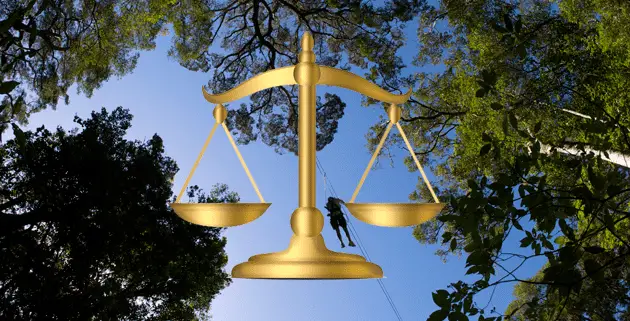Adventure Tourism from a Legal Perspective – Part 5
Part 1 in this series provided definitions for the term Adventure, while Part 2 looked at risk in terms of Nationality of Participant, Service Providers, Bookings, and Terms & Conditions, Part 3 covered Indemnity and Requirements of the Consumer Protection Act (CPA), and Part 4 covered risk and signage.
Part 5. By ‘Louis The Lawyer’
DUTY OF CARE
Negligence
Negligence can be broadly defined as conduct which involves unreasonable risk of harm to others OR the failure to exercise the degree of care which the circumstances demand. The latter definition brings into the fold the concept of duty of care: the duty to avoid doing something or to do something that may reasonably and probably cause harm to those to whom the duty is owed linked to a subsequent breach of that duty.
There are various circumstances as well as contracts and statutes (laws or enactments of parliament or local government) that can give rise to or impose a duty to take care.
Omission
Let’s start by considering whether and how an omission (i.e. the failure to act) can give rise to such a duty. It is said that ‘a mere omission’ does not give rise to such a duty as opposed to an omission in the process of performing a positive act: e.g. when making a booking but failing to advise the pax of imminent danger – there is in my view no difference whether the intended journey is of a local or international nature.
It is therefore imperative that the service provider (This includes the entire supply chain from e.g. the tour operator to all third parties supplying products or services) must be familiar with the client and his/her particular needs as well as the destination(s) and the route thereto/from as well as the credentials of all third parties providing service and products.
The willy nilly appointment of such third parties without thoroughly vetting them and their products (A due diligence is recommended) may well result itself being amounting to such an omission and thus give rise to liability. The CPA stresses the exposure of the entire supply chain and even in the case of section 61 absolute/no fault product liability can be apportioned.
Relationship
The relationship between the parties may give rise to such a duty. One may well argue that the travel agent or tour operator owes all pax such a duty. It is therefore important to act within the scope of your professional training, skills & related knowledge. So given that travel agents and tour operators are or should be properly trained and have the skills and knowledge (see above) but fails to impart that knowledge and/or apply such skills and training, the court may well find that they had a duty of care, breached same and will be held liable for the consequences. This exposure is extended to employees (acting in the course and scope of their duties) so it is important to have and apply a thorough travel policy. An area of concern in this regard is how to deal with employees going on a so-called ‘frolic of their own’ when away on a business trip!
It is the breach of the above duties of care or such as may be demanded by the circumstances that gives rise to negligence, provided such breach involves an ‘unreasonable risk of harm to others’, which may well be the case if applied to the circumstances sketched/envisaged.
However the courts are not unreasonable and when applying the so-called foreseeability test, i.e. the extent to which the occurrence should have been anticipated, it will look not only at the possibility of the incident occurring, but also the remoteness of such an occurrence; whether or not, even if it were to occur, the nature of the harm (serious or negligible) was such as a nature that the mythical ‘reasonable man’ would have guarded against it – the latter would mean an assessment of the steps taken/that could have been taken and the efficacy thereof.
To be continued in Part 6.
Disclaimer: This article is intended to provide a brief overview of legal matters pertaining to the tadventure tourism industry and is not intended as legal advice. © Adv Louis Nel, ‘Louis The Lawyer’, November 2016.




